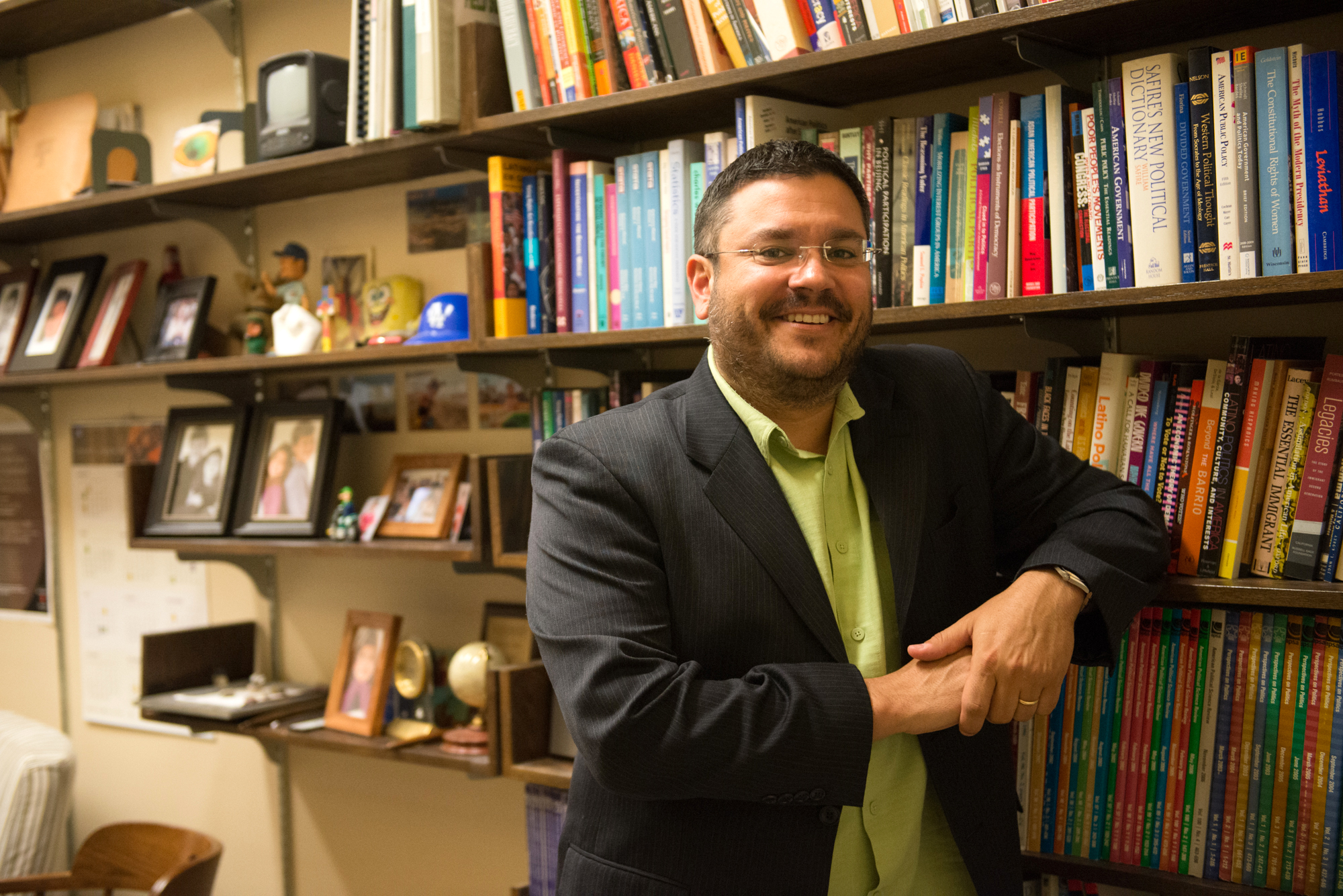The debate over state voter-ID laws in the lead-up to November’s elections may have gained a national audience, but the legal action has played out largely in Midwest and Southern courtrooms to this point. That’s not to say Seattle hasn’t been well-represented. University of Washington political science professor Matt Barreto has been in the middle of most of it. Or at least his research has.
The 37-year-old professor has lately been a man in demand. The research he and his colleague, New Mexico professor Gabriel Sanchez, are becoming known for has become part of the standard playbook for lawyers challenging voter-ID laws. Using statistically sound large-swath surveys on a state-by-state basis, Barreto’s findings have demonstrated that not only are blacks, Latinos, and minorities less likely to possess valid photo ID, they’re also less likely to have the documents necessary to obtain such ID.
According to critics of voter-ID laws—which have now been pursued, in one form or another, in nearly half the states in the union—research confirms that such laws create voter disenfranchisement along racial and socioeconomic lines. These laws have proliferated in the wake of the 2013 Supreme Court case Shelby County v. Holder, in which the court, by a controversial 5-4 vote, struck down a section of the Voting Rights Act of 1965 requiring states to obtain federal preclearance before changing voting regulations or practices. With the federal preclearance hurdle removed, states that pass voter-ID laws can move quickly to implement them—and have, to the dismay of many, including the national legal arm of the American Civil Liberties Union.
ACLU Voting Rights Project staff attorney Sean Young says Barreto’s methodology and findings have been “critical to our success” in challenging the laws. “He’s very important to our work, and his reputation is unassailable,” Young says of Barreto. “Certainly we expect to rely on him in the future.”
Last month the effort logged its biggest victory to date when a Federal court struck down a Wisconsin law, signed by Republican Governor Scott Walker in 2011, requiring voters to show photo identification before casting a ballot. During the trial, Wisconsin Assistant Attorney General Clayton Kawski rolled out the traditional argument in favor of voter-ID laws—the prevention of voter fraud—to no avail. It marked the first successful federal court challenge to a voter-ID law and the first victory under Section 2 of the Voting Rights Act. If it holds, the decision is likely to have large implications for arguments regarding the constitutionality of voter ID.
In his 70-page ruling, U.S. district judge Lynn Adelman said that Barreto’s findings in Wisconsin, “when added to the other evidence in this case, support the conclusion that minorities in Wisconsin are less likely than whites to possess a qualifying ID.” By contracting with a polling firm to call well over 1,000 registered voters in Milwaukee County—including oversampling to target Latino and African Americans, as well as cell-phone-only voters—Barreto and Sanchez’s report showed that 13.2 percent of African-American voters and 14.9 percent of eligible Latino voters in the area lack proper photo ID, while only 7.3 percent of white voters are in the same boat.
Adelman seemed to take careful note of all of it. Young says the federal judge’s decision—which Wisconsin has appealed and which will now head to the Seventh Circuit Court of Appeals, with a likely Supreme Court date in its future—is particularly important because of the way “the court really laid out and explained why voter-ID laws are so harmful to our democracy.”
“[Judge Adelman] just systematically dismantled the voter-fraud myth in a way that went beyond any other court decision that I have seen,” Young continues. “He said, correctly, that when it comes to election integrity, the perpetrator of the voter-fraud myth are the ones that are undermining voter confidence in the electoral process, not actual voter fraud . . . He said you can’t pass a restrictive law based on an imaginary fear.”
Wisconsin isn’t the only state where the voter-ID debate has had lawyers grappling, and it’s keeping Barreto, who has become no stranger to red-eye flights, awfully busy. Judges in Pennsylvania and Arkansas have struck down voter-ID laws this year. In January, Pennsylvania Judge Bernard L. McGinley cited research Barreto and his partner Sanchez compiled on the Keystone State in his reasoning, concluding that he “had a high degree of confidence in Professor Barreto’s survey results and that those results corroborate that hundreds of thousands of voters lack a compliant ID.”
Despite the mounting evidence in Barreto’s voter-ID work and the growing interest in it, the professor is quick to point out that in each new state he’s asked to study, he lets the findings—not his assumptions—do the talking. “We never know what we’re going to find in any particular state,” Barreto says. However, he also notes that “from our academic research in general and our reading and our knowledge of history, we know that voting restrictions and requirements and regulations historically have been used to decrease the participation rates of blacks and Latinos.”
“There are differences from some jurisdictions to others, but so far we have been seeing a pretty consistent result that minorities are disproportionately impacted by these voter-ID laws,” explains Barreto, “which is consistent with the history of civil-rights and voting-rights struggles in this country.”
Trials regarding voter-ID laws are pending in North Carolina and Texas, with the Lone Star state’s Veasey v. Perry, which goes to trial in September, looming particularly large. Barreto is unable to comment on whether his research will be involved in either case, but given the way things are going, it wouldn’t be surprising.
mdriscoll@seattleweekly.com








